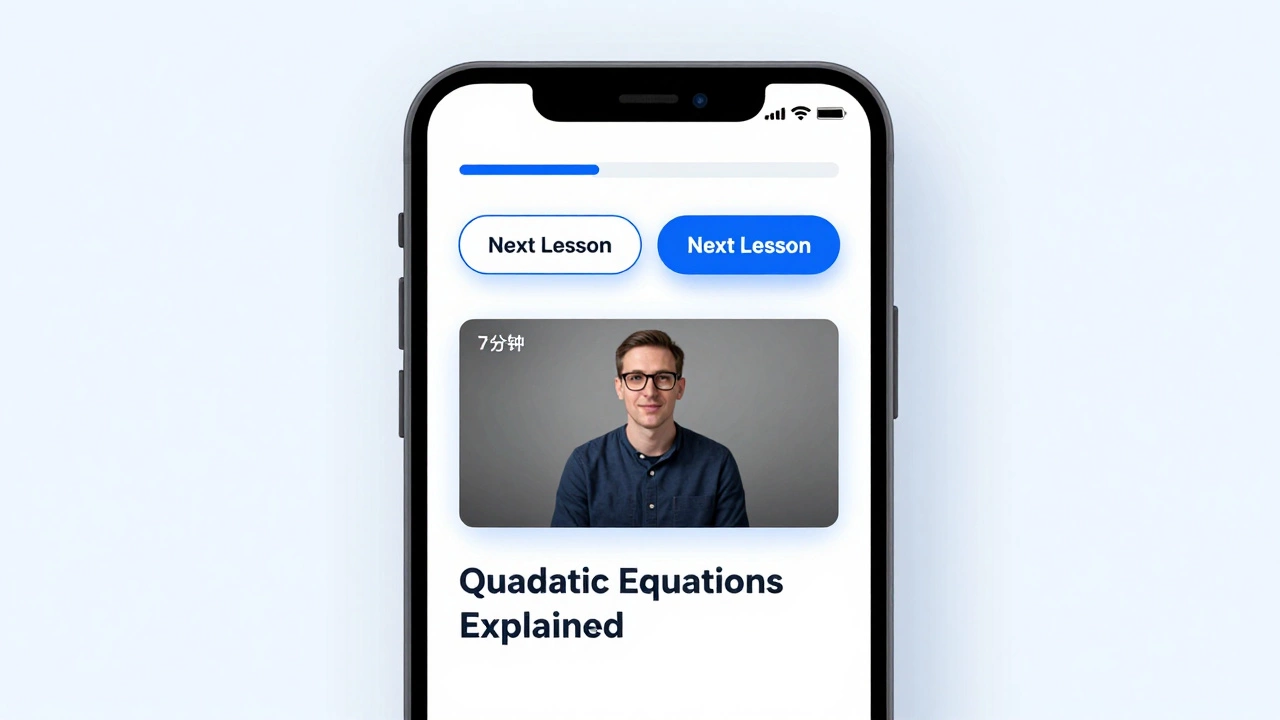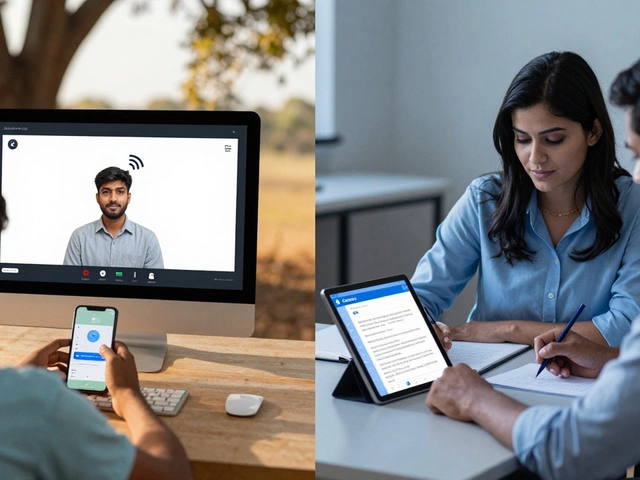Would you believe that with a WiFi connection and enough coffee, you can chase an entire degree while sitting at home, totally free? My son Vihaan asked me this when he watched a YouTuber claim to earn a legit degree online for zero dollars. It sounds like some slick internet fantasy, right? Except, here’s the twist: free online degrees can be real—but only if you dodge the hype and really understand how and where they exist.
The Truth Behind Free Online Degrees
Let’s be honest. If you’re imagining a completely free, fully accredited bachelor’s or master’s degree from, say, Harvard or University of Sydney, you can keep dreaming. There’s no such thing hiding on the web. But don’t close this tab yet—because ‘free’ is possible in more nuanced ways.
First, most reputed universities now offer free versions of many of their courses through platforms like Coursera, edX, and FutureLearn. MIT, Harvard, Stanford, and University of London have released thousands of hours of high-quality content for the public, no tuition or fees required. You can follow lectures, complete assignments, take quizzes, and actually learn the same material as “paying” students. The catch? These free courses usually lead to a certificate, not a formal degree. If your main goal is pure knowledge, this is pretty awesome.
Want an actual diploma to hang on your wall? Enter places like the University of the People, which might surprise you. It calls itself a tuition-free, accredited American online university. How? The university uses volunteer professors, open-source material, and charges only small fees for final exams ($120 per) and a graduation fee. For a four-year bachelor’s degree, your total bill could come to under $2500 USD—dirt cheap compared to the $30,000+ price tag at traditional universities. But the tuition part is legit zero dollars.
There are similar “fee-only-for-exams” options in Europe. Take the Open University in the UK, or Germany’s tuition-free universities. Germans pay nothing for the courses themselves, but you might have to show up in person once for an exam, which for online international students is tricky and can add travel costs. Some Indian institutes, such as IGNOU (Indira Gandhi National Open University), open up selected modules at minimal or no fee online.
| Platform/University | Free Courses? | Formal Degree? | Accredited? | Hidden Costs |
|---|---|---|---|---|
| Coursera | Yes | No (Certificates only; full degree costs $$$) | Yes (via partners) | Paid exams/certificate |
| MIT OpenCourseWare | Yes | No | n/a | None |
| University of the People | Yes | Yes | Yes (DEAC, US) | Exam fees/export fee |
| Open University (UK) | Selected | Yes (But not all are free) | Yes | Exam & admin fees |
| German Public Unis (selected programs) | Yes | Yes | Yes | Possible travel/admin cost |
The bottom line: There’s genuine value out there, but a free online degree usually comes with fine print, like administrative or exam costs, or lacks full university recognition.
How Do Free Online Degrees Really Work?
Every time someone tells me about a “free online university,” I always ask, “What’s their business model?” The gold standard is official accreditation. If a program’s not, then your degree isn’t worth much more than a pressed flower. Here’s how legit free online degrees tick behind the scenes.
Public universities funded by government grants (think Germany, Norway, and Finland) often don’t charge tuition even for international learners. But you may still need to cover a “semester fee” or certain resources (rarely more than $500/year).
Nonprofit universities—such as University of the People—make the degree process nearly free by cutting campus costs, getting volunteer faculty, or partnering with open source providers. Their recognition is growing fast: they’re now accredited in the U.S. and accepted in more countries, and graduates have gone on to work at top employers like Amazon and IBM. Yet, you’re on your own for books and internet, and you might pay for graduation or credential evaluation if you want to prove your degree’s legitimate elsewhere.
All the “free” courses on platforms like edX, Coursera, Udacity, MIT OCW, and Khan Academy exist thanks to partnerships, donor funding, or a “freemium” model: anyone can join, but only those who pay get the certificate. This can be a smart route to sample subjects, gain job-ready skills, or prep for proper university study. I know teachers here in Sydney who recommend these for upskilling, especially for parents considering career changes.
But let’s be crystal clear: most employers or government agencies want a degree, not a course certificate, for serious roles. So these free online courses are best if you’re self-employed, building a start-up, or aiming for fields that value skills over formal documents.

Common Scams And Misconceptions About Free Online Degrees
This section should probably carry a giant red warning sign. Every week, people lose money to so-called “universities” that flash the word “free” but are actually diploma mills—dodgy organizations selling pieces of paper without real academic value. The tipoff? No accreditation, vague contact info, ridiculous promises like “graduate in 1 week,” or fees that only appear after you sign up.
Another frustration: websites that say “Study free at Harvard online!” only to shuttle you to a page selling $1500 “specializations” or limited free lessons that stop unless you subscribe. Always check: is this course really free, or is it just a sample for an upsell?
A good way to check legitimacy is the free online degrees accreditation. Look for approval by the CHEA (Council for Higher Education Accreditation) or regional agencies. You can also check the World Education Services (wes.org) or Australian Qualifications Framework for local recognition. “If a degree is truly globally recognized, its details will appear in national databases,” says Dr. Fiona Harley, Head of International Admissions at the University of Sydney. It’s worth taking a minute to check.
Other scams? Offers on social media promising you a life-changing degree for a “processing fee” or “application fee”—with no actual course content. It’s clever, but it’s a scam. Don’t trust a school that doesn’t have a physical address, actual phone numbers, real staff, or alumni you can verify.
How To Find And Enroll In Legitimate Free Online Degree Programs
The search starts simple: Know what you want—a full degree, or just brush up on specific skills? Second, check language and location requirements, because some “open” universities still require travel for exams, or language proficiency tests (think TOEFL or IELTS).
- For true online degrees with minimal fees: Begin at University of the People (www.uopeople.edu)—you’ll see their degree programs in Business Administration, Computer Science, Education, and Health Science. Another good one: Open University in the UK. Both are US and UK government-accredited.
- For zero cost with a diploma: Germany’s ‘TU9’ tech universities and some Nordic universities list English-taught, tuition-free online courses, but they fill up quickly—so you’ll need to watch deadlines and handle all paperwork yourself.
- For upskilling and job-readiness: Coursera, edX, FutureLearn all let you audit courses for free. Many IT recruiters in Sydney happily accept candidates with a clutch of these certificates in coding, data science, or project management, especially if you show off a relevant project portfolio.
Got a question about a program’s legitimacy? Use the country’s Ministry of Education site or the UNESCO World Higher Education Database to double check the institution. Some institutions now use blockchain to validate credentials, so no one can forge a transcript.
If you care about recognition in Australia, check the Tertiary Education Quality and Standards Agency (TEQSA) database. Worried about application fees? Universities of the People and German online public universities are the most transparent. Expect to show transcripts from your last school, proof of English, and sometimes pass a short entrance quiz. No tricks.

Is A Free Online Degree Right For You? Pros, Cons, And Life After 'Graduation'
So what’s a free online degree really worth? If you’re organized, self-motivated, and not after the “campus lifestyle,” it’s hard to beat. Some students in my local dads’ group are finishing their bachelor’s while juggling kids, two jobs, and late-night footy replays; you can pace your learning and pause when life gets hectic.
The biggest perks? Massive cost savings. No travel, no commutes, no overpriced textbooks. The programs accept students globally, so you brush digital shoulders with folks from 180+ countries. It’s a solid way to prove to future employers that you’ve mastered self-discipline—and possibly gain new job-ready skills fast.
But fair warning: you need to be relentless about deadlines. It’s lonely. No coffee shop study sessions, no campus banter, and networking takes extra effort. University admin is rarely as fast as you’d hope—they’re running on small teams, and you might wait days for replies. And in some fields (like medicine or some types of engineering), you absolutely need traditional, in-person, regulated courses for real licensure.
“Online education is bridging access gaps, but not all credentials are created equal. Students must research the recognition of their chosen degree before investing time or money,” says Dr. Salman Khan, founder of Khan Academy.
It’s not the magic answer for everyone. But if money’s tight or you want to learn without the extra frills, these programs can open new doors—sometimes better ones than the expensive on-campus path. Digital degrees are getting more respect, and some top Aussie companies now judge candidates more on proof of skill than a fancy logo on their diploma.
The world of free online degrees might not look like those polished college ads. But, to my son Vihaan’s delight, if you dig into the right programs, work hard, and keep your expectations realistic, you might graduate with an education that costs a fraction of what it used to. That’s something worth considering—no matter where you start.










0 Comments